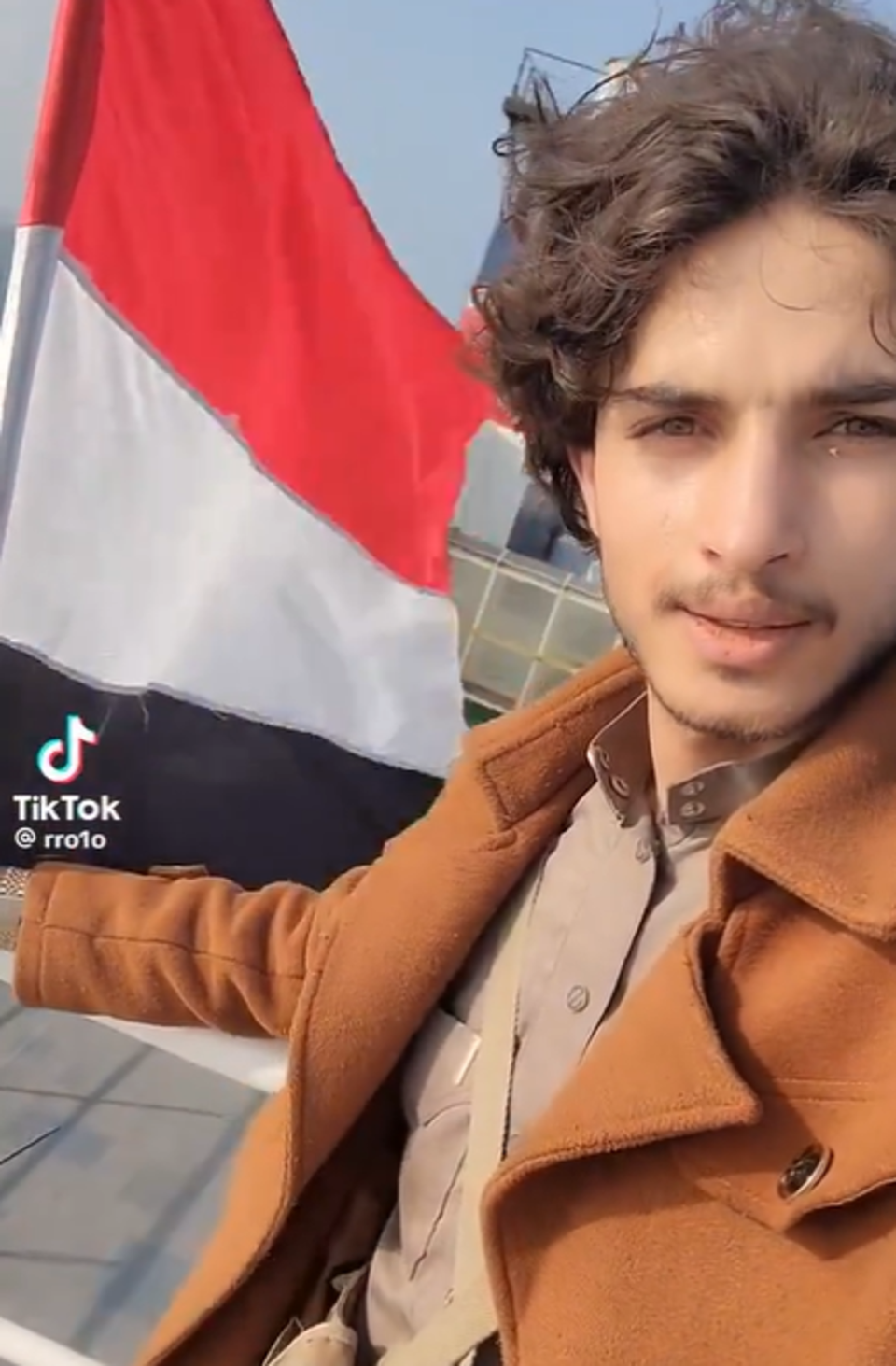Yemeni pirate banned from TikTok after video goes viral

As conflicts in the Middle East rage on social media has become the new battleground for misinformation and propaganda.
And one Yemeni social media user who went viral on TikTok has now had his videos removed after attracting millions of views by promoting Houthi rebels.
In a video that could be an attempt to echo the dramatic flair of Disney’s Pirates of the Caribbean films, the attractive, well-groomed Yemeni influencer can be seen posing to the camera as music plays in the background, while he holds the national flag and looks out to sea.

While it has been removed from TikTok for breaching their community guidelines, his videos continue to appear on Instagram and X, formerly known as Twitter.
Introducing himself as the “Pirate King”, Rashid Al Haddad’s hashtags include #PalestineIsOurCause and #AbuObeida, a reference to the military spokesperson for Hamas’ al-Qassam Brigades.
Despite the group wreaking havoc on the global market by attacking commercial cargo ships crossing the Red Sea in support of Gaza, comments underneath his videos are largely positive or trivial.

Trending under ‘hot Houthi pirate’, the video has racked up 11m views on X alone, with users writing “this man looks like a movie star” and one asking “Where can I find those pirates? Asking for a friend”.
Others have compared him to American actor Timothée Chalamet, while others have expressed support for their cause, with videos of demonstrators singing in protest in the capital S’anaa also attracting millions of views and being widely shared across Instagram.
The influencer, who has previously posted pictures with an AK-47 over his shoulder, has now called for his tens of thousands of followers to turn their attention to Gaza.
While his account has been banned from TikTok, Al Haddad’s also runs numerous social media accounts on Facebook, Instagram and Threads, with 26,000 subscribers to his Youtube channel.

Dr Christine Cheng, a senior lecturer in war studies at King’s College London, said: “They (the Houthis) have really seized an advantage here and an opportunity to get their message out.
“They are using the media in quite a strategic way, we have seen this in Russia - not so much with the most recent attacks in Ukraine but earlier when we were looking at 2014. They really pulled off something specuatular in the region around Crimea, they really harnessed the social media landscape to change the narrative.
The videos came just days after the US and the UK led airstrikes against Houthi bases in retaliation for the targeting of international trade, with 60 targets in 28 locations hit by missiles.

On Monday, Rishi Sunak said the government would not “hesitate to protect” UK security and that the aim of the action was to “de-escalate tensions in the region and actually restore stabillity back to the area”.
In their most recent update on 12 January, TikTok said they had removed more than 1.5million videos and suspended more than 46,000 livestreams in Israel and Palestine for violating their community guidelines, which included promoting Hamas, terrorism and misinformation.
Meanwhile, tens of millions of pieces of content have been removed across the globe and moderators have prevented teen accounts from viewing more than 1.5million videos containing graphic violence.


